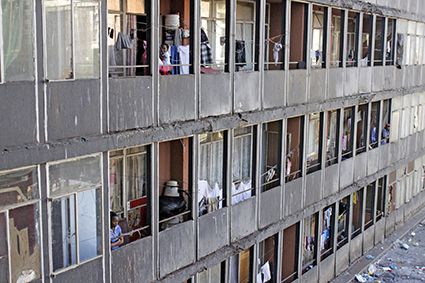Illegal immigrants dragged for hijacking buildings and renting them out to locals
Undocumented Foreign nationals have been blamed for exploiting abandoned buildings in key metros across the country, with municipalities facing challenges in addressing the issue due to several concerns.
The fourth national municipal legal practitioners forum, held in Durban last week, shed light on the complexities surrounding the hijacking of buildings and the legal barriers preventing swift action.
The event, organized by the South African Local Government Association (Salga), brought together municipal managers, finance officials, and legal advisors to discuss crucial legal matters impacting local government.
Lance Joel, the Salga national chairperson of the governance and international relations working group, highlighted the challenges faced by municipalities in dealing with building hijackings, particularly in metros such as eThekwini, the City of Johannesburg, and Tshwane.

According to Lance, these buildings are targeted by individuals who take advantage of the municipalities’ hesitance to evict them due to the costs and complexities associated with obtaining eviction orders.
He emphasized that the process of reclaiming hijacked buildings involves laborious court procedures and poses financial burdens on municipalities, as they are obligated to provide alternative accommodation for evicted individuals.
“The process is costly for municipalities because once they have evicted people, they have an obligation to find alternative accommodation for them. The buildings are also not owned by municipalities; they are privately owned. We also need to work with various stakeholders, such as the department of home affairs, because there are illegal immigrants involved,” he said.
Property hijacking is not only an issue of concern for municipalities but also a national security threat, as highlighted by Lance.
The involvement of illegal immigrants further complicates the situation, requiring collaboration with various stakeholders, including the Department of Home Affairs.
Lance acknowledged the complexities of the legal processes involved in addressing building hijackings and emphasized the importance of working collaboratively with stakeholders to find sustainable solutions.
He noted that despite the presence of legal practitioners within municipalities, the nature of each case varies, leading to challenges in resolving issues out of court and necessitating costly litigation.
Also Read: Car smuggling suspect arrested enroute to Zimbabwe
